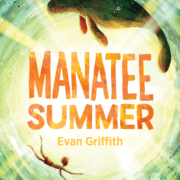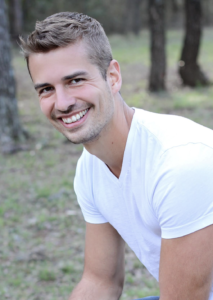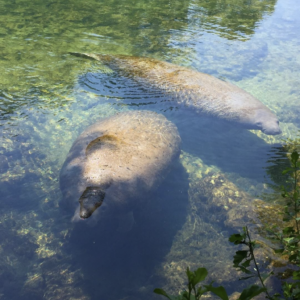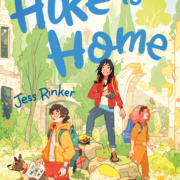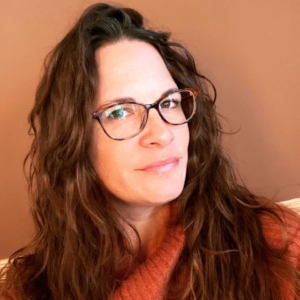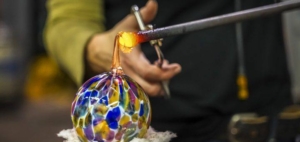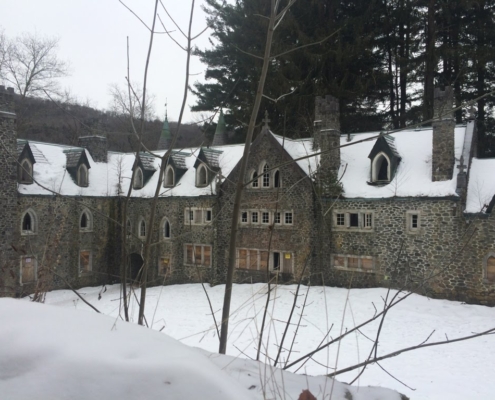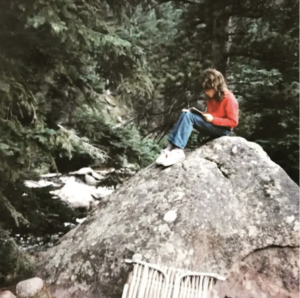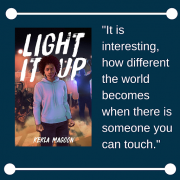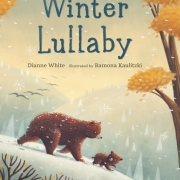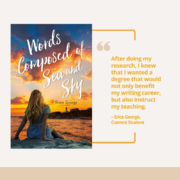Music Mavens: An Interview with Ashley Walker and Maureen Charles
As Henry Wadsworth Longfellow once said, “Music is the universal language of mankind.” It has been compared to breath, to life, and is generally understood as something mankind simply cannot be without. In celebration of this universal language and amazing women who contribute to it, VCFA alums Ashley Walker and Maureen Charles combined forces to give young audiences everywhere an all new biography collection, Music Mavens: 15 Women of Note in the Industry. Join us as we learn more about this amazing new book and the authors who co-wrote it!
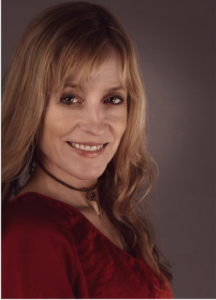
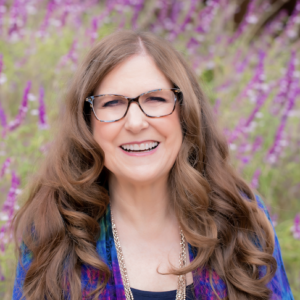
Ashley Walker Maureen Charles
- Tell us a little about Music Mavens. How did you approach writing it together?
Music Mavens: 15 Women of Note in the Industry is a biography collection in the Chicago Review Press Women of Power series, which features high-achieving contemporary women. We were free to approach the world of music from any direction and decided to come at it from many angles, exploring multiple genres and industry roles to show young creatives a variety of paths through the music industry.
This broad approach also served us well as writers. We split the work in half, independently interviewing women in our respective areas of expertise/interest before sharing each story for feedback. Later in the process, we both read and commented on the entire manuscript so many times that we can honestly say we jointly own every word.
“Writing together” extended beyond the two of us. Many authors from the VCFA WCYA program contributed authenticity reads and proofreading. And each artist featured in the book read and responded to her chapter, leaving us confident that what we’d written was not only accurate but truly captured each subject’s unique voice and perspective.
- Tell us a bit about yourselves. Did you meet at VCFA?
Mo: Yes, we met at VCFA. I started out in the same graduating class as Ashley (Writers of the Lost Arc, July 2018) but graduated with the Wrights of the Round Table (January 2019). In addition to being a writer, social entrepreneur, and educator, I’m an amateur musician. I’ve played the guitar and ukulele since age ten and began singing in choirs at age four. I am also the widow of Jon Charles, an Emmy-winning music arranger, composer, and orchestrator, who passed away suddenly just after I completed my first semester at VCFA.
Ashley: I’m an author, amateur musician with experience in classical and traditional music, and educator with a background in engineering and artificial intelligence. During my VCFA years, my teaching schedule could only accommodate summer residencies, so I came to campus with the Themepunks in 2014, graduated with the Writers of the Lost Arc in 2018, and met Mo while waiting for a shuttle from the Burlington airport in July 2016. Without her, without VCFA, Music Mavens wouldn’t exist in anything like its present form.
- What were some of your challenges writing this book?
We wanted a diverse, international cast drawn from every corner of the music industry, so coming up with the right mix of artists was a big challenge. Because we were required to interview each music maven, we spent many months casting and recasting our list as potential subjects accepted or declined interview requests.
At the writing stage, we grappled with word count. The information we collected during research, combined with long interview transcripts, resulted in far more material than we could include in each chapter. In determining which charming-and-never-before-reported details contributed to each narrative arc, we endured the sweat and heartbreak of deleting many a darling.
- What were some surprising things you learned as you wrote Music Mavens (life, writing, publishing, music, etc.)
We were surprised and delighted by the educational diversity of our cast. (We didn’t select for that.) Music Mavens features musicians who worked their way through top conservatories alongside artists who taught themselves core skills from YouTube videos and hustled their way up from entry-level positions in studios and record stores. We hope the variety of educational paths taken by our mavens will inspire young creatives to forge their own.
We also marveled at how fast the mavens’ careers are advancing. We submitted our first full draft in December 2021 and had new information to include right up to the final proofread in August 2022.
For example, Marvel’s Thor: Love & Thunder was released just in time for us to include it in the chapter on film composer Nami Melumad. On the other hand, songwriting and producing duo Nova Wav (Brittany “Chi” Coney and Denisia “Blu June” Andrews) wrote/produced eight of the tracks on Beyonce’s Renaissance album and received three 2023 Grammy nominations shortly after Music Mavens went to print. It has been thrilling to watch all 15 win awards, put out new music, and get cast in new shows. Young creatives can visit the book’s website (www.musicmavensbook) to see performances discussed in the book and recent news.
- Which artists were you most excited to share with the world? Why?
Oh, that’s like asking which child is your favorite! We got to know all of these artists well and appreciate their unique characters and contributions, including how each maven uses her position to uplift others.
For example, renowned rock photographer Katarina Benzova established her own foundation, Mission11, to create campaigns with photography, video, and even celebrity support for charitable organizations. Oram Award-winning multidisciplinary artist Lia Mice designs accessible instruments, such as the one-handed violin, created in collaboration with the One‐Handed Musical Instrument (OHMI) Trust. Two-time world champion beatboxer Kaila Mullady does school visits and has also developed a speech therapy program that uses beatboxing for articulation skill development.
Though we’re fans of the art and activism of ALL mavens, we hope young people will find faves to add to their playlists and follow as role models.
- What are some unique challenges in writing young adult nonfiction?
When it comes to music, every teen and young adult reader has some knowledge, but we had to assume nothing. We tasked ourselves with defining every musical term without getting too pedantic or taking the reader out of the story.
The other challenge was bringing everything we know about compelling storytelling to the page while at the same time telling the absolute truth. We made up no dialogue, attributed no unexpressed feelings, embellished nothing.
- What does music mean personally for each of you?
Ashley: Music provided solace for me as a child, and in adulthood, I use it to connect with my kids. I took up the violin alongside my sons, and with my daughter, I learned the đàn tranh, a traditional instrument from her birth country. Beyond family, playing for an audience has given me powerful storytelling opportunities. In Musicophilia, the late Oliver Sacks said, “Music, uniquely among the arts, is both completely abstract and profoundly emotional.” My experience of conveying emotion in music (from my little chair at the back of orchestras and ensembles) made me curious to meet the mavens who wield that storytelling power at the frontline of music.
Mo: Music has provided both a soundtrack for my life and an art form for my self-expression. Marrying an arranger/composer, who was part of a music industry family, greatly expanded my knowledge of and appreciation for all genres of music. Writing about musicians was also a way to honor and connect with my late husband.
- Did you learn anything at VCFA in particular that helped you write this book?
We both studied fiction writing at VCFA, and everything we learned applied to biography writing.
Ashley: My work on a series of MG novels filled my box with tools I pulled out every day of this project. I’m thinking about studies of setting with Rita Williams-Garcia (1st semester) and Alan Cumyn (3rd), character with Kathi Appelt (2nd), and narrative arc with Shelley Tanaka (4th).
Mo: With a page limit for this book and 15 stories to tell, we had to write lean, and my work with advisors Mary Quattlebaum, Linda Urban, and Jane Kurtz on scene, story structure, and revision really paid off. During my VCFA picture book semester with Uma Krishnaswami, I worked on a PB biography, and I delivered a Picture Book Panel presentation (July 2017) on ways to home in on the story for a PB Bio. Those explorations proved extremely helpful as I wove together a narrative for each maven.
After graduation, we both took VCFA grad Donna Janell Bowman’s awesome picture book biography class. Most of what we learned from Donna applied equally to writing YA.
A big shout out to Martha Brockenbrough, whose lectures on nonfiction research we revisited and whose YA biographies (Unpresidented and Alexander Hamilton, Revolutionary) served as mentor texts for this book.
And we received incredible support from classmates and mentors with industry platforms. Special thanks to Stephani Martinell Eaton, Gail Vannelli, and Cynthia Leitich Smith for including Music Mavens in Cynsational News and the Cynsations series on Nonfiction for Older Readers.
- What has been the most rewarding about this process so far?
First and foremost: our partnership. We went into this aware of the challenges of co-writing, and we came out closer due to careful communication and commitment to the project. Second: meeting and befriending some of our musical heroes.
- What can we look forward to from each of you in the coming years?
Ashley: I’m working on a nonfiction narrative project about artificial intelligence (my former field) and drafting an MG novel exploring a life-long interest in technology and empathy. At this time, I don’t have plans to write about music, but musicians always wander into my fiction.
Mo: I have nothing new under contract now. However, I’m still working on my MG “lamb” novel that was part of my creative thesis, I have several picture books in progress (including two about musicians), and I’m working with my son Shakib on the story of his childhood in Kabul, Afghanistan.
For more information, visit Maureen at www.maureencharles.com and Ashley at www.ashleywalkerbooks.com. You can also meet all 15 music mavens at www.musicmavensbook.com, where the authors have curated photos, videos, and Spotify playlists for each artist.

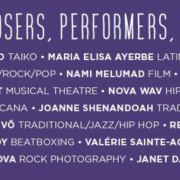
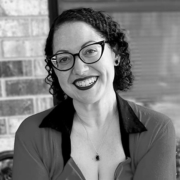
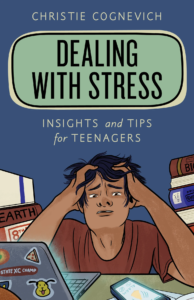
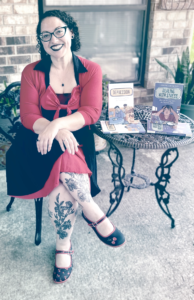
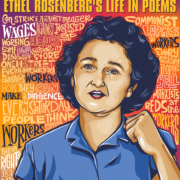
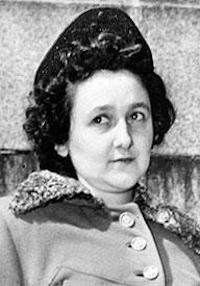
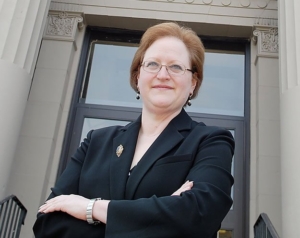 4. Tell us a bit about you. What makes you tick as an author?
4. Tell us a bit about you. What makes you tick as an author?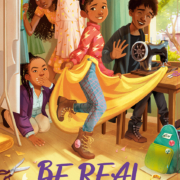
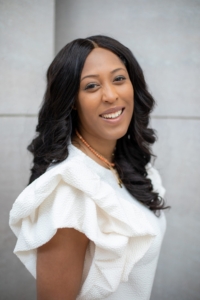
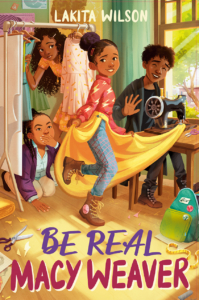
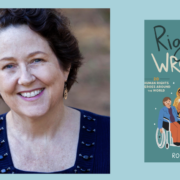
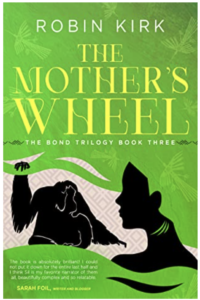 In my life, I’ve written in virtually every format: essays, op-eds, poems, fiction (novels, novellas, short stories, and flash fiction), press releases, technical reports, etc. I even drafted an opera based on my neighborhood list serve! For me, format is a choice that leads to the audience you are seeking as a writer and what effect you hope to have. But in all of these formats, my theme is very much the same: justice. In Righting Wrongs, I wanted to highlight that rights are envisioned, then won, then defended. Human rights were always something people had to think up, then work to achieve. I want kids to know about the people who did that on women’s rights, the laws of war, animal rights, and much more. In The Bond Trilogy, I use story to explore how rights work in an alternate world. My heroine, Dinitra, is raised to believe that men are inherently violent and should be eliminated. That’s one of the real-world ways of thinking that leads to genocide. In the course of the series, Dinitra comes to question everything, even the idea that animals and mutants—mixtures of animal and plant—don’t have rights equal to hers. The main character in The Mother’s Wheel is a mutant, Sil, who ends up saving her and creating a found family that is just as loving and intertwined as any purely human one.
In my life, I’ve written in virtually every format: essays, op-eds, poems, fiction (novels, novellas, short stories, and flash fiction), press releases, technical reports, etc. I even drafted an opera based on my neighborhood list serve! For me, format is a choice that leads to the audience you are seeking as a writer and what effect you hope to have. But in all of these formats, my theme is very much the same: justice. In Righting Wrongs, I wanted to highlight that rights are envisioned, then won, then defended. Human rights were always something people had to think up, then work to achieve. I want kids to know about the people who did that on women’s rights, the laws of war, animal rights, and much more. In The Bond Trilogy, I use story to explore how rights work in an alternate world. My heroine, Dinitra, is raised to believe that men are inherently violent and should be eliminated. That’s one of the real-world ways of thinking that leads to genocide. In the course of the series, Dinitra comes to question everything, even the idea that animals and mutants—mixtures of animal and plant—don’t have rights equal to hers. The main character in The Mother’s Wheel is a mutant, Sil, who ends up saving her and creating a found family that is just as loving and intertwined as any purely human one. I had just finished the draft of an adult novel and was pretty sad. I was on vacation with my family and ended up walking down a mountain largely by myself (everyone was ahead of me). I’d just finished The Book Thief by Markus Zusak and was so impressed by how he tackled the incredibly difficult theme of humanity in the midst of the Holocaust. Doubly impressive that he did this with kid readers in mind. I wanted to do something in the same spirit in a fantasy world. So I thought, ‘What group of people would most of us say has damaged the world the most – and who many would then believe should be controlled or even eliminated?’ The answer was easy: men. And that’s the seed of The Bond, where Dinitra has been taught that it’s not only natural to confine men. Getting rid of them entirely is the best and most ethical way to protect the world. What I learned is EVERYTHING. This early draft was what I sent as part of my application to VCFA. Looking back, it was TERRIBLE from start to finish and in every way. But it became the template that helped make me a better writer, good enough, at least, to turn this idea into a publishable book.
I had just finished the draft of an adult novel and was pretty sad. I was on vacation with my family and ended up walking down a mountain largely by myself (everyone was ahead of me). I’d just finished The Book Thief by Markus Zusak and was so impressed by how he tackled the incredibly difficult theme of humanity in the midst of the Holocaust. Doubly impressive that he did this with kid readers in mind. I wanted to do something in the same spirit in a fantasy world. So I thought, ‘What group of people would most of us say has damaged the world the most – and who many would then believe should be controlled or even eliminated?’ The answer was easy: men. And that’s the seed of The Bond, where Dinitra has been taught that it’s not only natural to confine men. Getting rid of them entirely is the best and most ethical way to protect the world. What I learned is EVERYTHING. This early draft was what I sent as part of my application to VCFA. Looking back, it was TERRIBLE from start to finish and in every way. But it became the template that helped make me a better writer, good enough, at least, to turn this idea into a publishable book.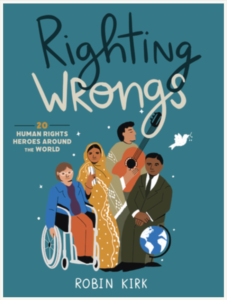 The idea was very much born in the classroom. I teach human rights to undergraduates. Again and again, I understood that they thought of human rights as something everyone got, kind of like a driver’s license, and that was consistent through time. This is in part a huge failure of the US educational system, but it goes further than that. My students simply couldn’t see that real people were behind the rights they took for granted. And real people are also constantly pushing at the boundaries of ideas of rights to include more people—women, children, LGBTQIA+, the disabled, even animals. I wrote this book not only to highlight the very real people behind human rights, but also show them, these new generations, that human rights now belongs to them and they get to continue to expand these ideas.
The idea was very much born in the classroom. I teach human rights to undergraduates. Again and again, I understood that they thought of human rights as something everyone got, kind of like a driver’s license, and that was consistent through time. This is in part a huge failure of the US educational system, but it goes further than that. My students simply couldn’t see that real people were behind the rights they took for granted. And real people are also constantly pushing at the boundaries of ideas of rights to include more people—women, children, LGBTQIA+, the disabled, even animals. I wrote this book not only to highlight the very real people behind human rights, but also show them, these new generations, that human rights now belongs to them and they get to continue to expand these ideas.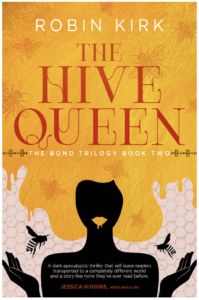 When I finished the first draft of The Bond, I thought that was it, that I was done with these characters and this world. But my son, about 10 at the time, said to me, “Boys love series. They want to know what they’re getting into. You should write a series.” I immediately dismissed this. Then gradually, I started to see how rich this world could be. The Hive Queen was terrifying to write but also so satisfying. I’d completed The Mother’s Wheel when the original published canceled the contract (in the midst of COVID). So I was faced with a choice–leave the story as is or find a way to complete the trilogy? I realized that I couldn’t leave the story behind; I needed to finish. Otherwise, I realized, this world, these beloved characters, would be no more. I HAD to finish.
When I finished the first draft of The Bond, I thought that was it, that I was done with these characters and this world. But my son, about 10 at the time, said to me, “Boys love series. They want to know what they’re getting into. You should write a series.” I immediately dismissed this. Then gradually, I started to see how rich this world could be. The Hive Queen was terrifying to write but also so satisfying. I’d completed The Mother’s Wheel when the original published canceled the contract (in the midst of COVID). So I was faced with a choice–leave the story as is or find a way to complete the trilogy? I realized that I couldn’t leave the story behind; I needed to finish. Otherwise, I realized, this world, these beloved characters, would be no more. I HAD to finish.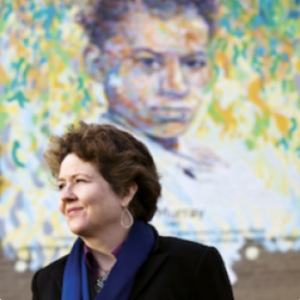 If I had to choose one, I’d say Judith Heumann, a champion of disability rights. At the time the Universal Declaration of Human Rights was agreed to in 1948, there was no recognition at all of the rights of the disabled. This is despite the fact that the person who chaired the effort, Eleanor Roosevelt, had lived with a disabled person, her husband, President Franklin D. Roosevelt (he died on an unrelated cause in 1945). Like FDR, Heumann contracted polio. She began to use a wheelchair as a young girl. At seemingly every turn, she was faced with discrimination. Instead of giving up, she and other disabled activists fought back, often very creatively. It’s largely due to their persistence that we have many accessible buildings, close-captioning, accommodations in the classroom and work, elevators, and so, so much more. Heumann is constantly reminding people that we all face potential disability because of life, especially as we age. Acknowledging and defending the rights of the disabled is good for us all.
If I had to choose one, I’d say Judith Heumann, a champion of disability rights. At the time the Universal Declaration of Human Rights was agreed to in 1948, there was no recognition at all of the rights of the disabled. This is despite the fact that the person who chaired the effort, Eleanor Roosevelt, had lived with a disabled person, her husband, President Franklin D. Roosevelt (he died on an unrelated cause in 1945). Like FDR, Heumann contracted polio. She began to use a wheelchair as a young girl. At seemingly every turn, she was faced with discrimination. Instead of giving up, she and other disabled activists fought back, often very creatively. It’s largely due to their persistence that we have many accessible buildings, close-captioning, accommodations in the classroom and work, elevators, and so, so much more. Heumann is constantly reminding people that we all face potential disability because of life, especially as we age. Acknowledging and defending the rights of the disabled is good for us all.